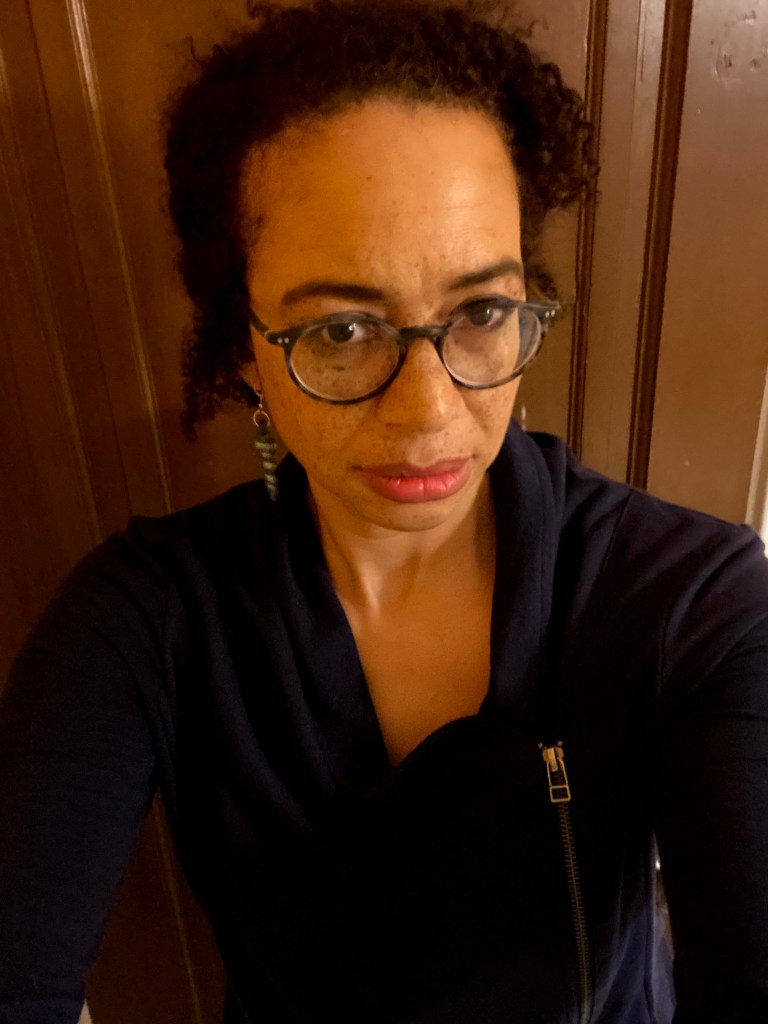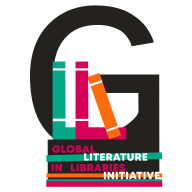I can’t believe how quickly this month has passed! When I took on my guest editorship, I worried that I wouldn’t find enough books and authors to promote, and I’m ending this month longing to promote dozens more.
Thanks to all my readers for your comments and your enthusiasm. It is gratifying to know that so many readers and librarians are interested in expanding their reading beyond English speaking North America and Great Britain. Yet there is much work to be done. As I was choosing books to profile, I would check to see which were readily available in public libraries; shockingly few were. There were titles I had originally planned to promote, but did not because it would have been too difficult for readers to find them.

I hope as librarians we will continue to push our patrons but also our vendors to broaden and diversify the range of translated books available at our libraries. Libraries open us up to the world, or so goes the cliche, but “the world” is not merely the North American, Northern European world.
Writing this blog was educational, exhilarating and profoundly sad. Reading stories of exile is a reminder of how horrible humans can be to each other, whether due to political differences, ethnic divisions (often cultivated for political reasons), religion, sexuality, or just plain orneriness. Although the expectation would be for me to tell you how inspiring and hopeful I found these stories, I’m afraid I can’t do that. Constantly demanding “hope” and inspiration from abused people makes us complicit in their abuse. When we consume refugee trauma as entertainment or demand that refugees be grateful, or that they should make us feel better about our own lives, then we are part of the exploitation.
What I hope you will take from these books is the recognition that common humanity demands we not look away, that we put as high a priority on the lives and happiness of Congolese and Somali teens, peasants in Guatemala, teachers in Croatia or Tibet, and young girls in Iran and Palestine as we do our own. In addition to listing several excellent resources for supporting exiled writers, I am also including links to organizations which assist refugees and asylum seekers around the world.
And a few thank yous: to my 3 “guest” guest bloggers: Kaya Genç, Jennifer Hattam and Elizabeth Bird for their sensitive and insightful work; to the many translators who make it possible for us to share the beauty of world literature; to the brilliant Karen Van Drie for organizing this project and inviting me to participate, and of course to all the remarkable writers and illustrators whose work has graced these pages.
Organizations for Exiled or Refugee Writers
- Exiled Writers Ink, Voices in a Strange Land -British based organization that promotes exiled writers,and freedom of expression
- Artcape: Poets of Protest – Sponsored by Al-Jazeera, Poets of Protest delves into the soul of the Middle East with intimate profiles of six contemporary poets, as they struggle to lead, to interpret and to inspire.
- Expat Books An extensive virtual library offering a wide collection of books to anyone living or planning to relocate abroad or simply wanting to discover new cultures. Includes novels, stories, portraits about history, culture, traditions, lifestyles of different countries.
- PEN International – Defends and advocates for writers at risk, supports and promotes the work of writers in exile.
- Poetry Foundation: Poems on Immigration, Exile, and Refugees
- ICORN (International Cities of Refuge) – Offers persecuted writers and artists a safe space for up to 2 years in cities around the world.
- Poetry Translation Centre: Poems on Exile – The Poetry Translation Centre works with leading poets and translators to share poetry from around the world. Though not specifically about exile, many of the poets featured on this site are refugees or exiles.
Books and Articles About Exiled Writers
- Literature In Exile, edited by John Glad, Duke University Press, 1990 – Papers from a conference for and about exiled writers. Includes writers whose origins lie in Central Europe, South Africa, Israel, Cuba, Chile, Somalia, and Turkey. Through their testimony of the creative process in exile, we gain insight into the forces which affect the creative process as a whole.
- Asylum and Exile: Hidden Voices in London, by Bidisha, Seagull Books; First Edition (3 Mar. 2015) Bidisha offers moving stories of refugees who have fled war, violent persecution, or civil unrest in countries as diverse as Cameroon, Iran, Syria, Somalia, Malawi, Burundi, the Congo, and Sierra Leone.
- Refugee Week List of books about Exile – A 56 PAGE list!! Is it any wonder I had trouble narrowing this down?
- Migration, Exile, and Diaspora in Graphic Life Narratives
- Guest Editors: Nima Naghibi (Ryerson U) & Candida Rifkind (U of Winnipeg) Stichtag: 2018 10 01 – Graphic life narratives, especially memoirs, diaries, and auto/biographies in the form of comics, have flourished over the three decades since the landmark publication of Art Spiegelman’s Maus. This special issue seeks to expand the scope of graphic life narrative studies to consider how migration, exile, and diaspora are prominent experiences in print and digital auto/biographical comics.
- Bolaño, Roberto. “Literature and Exile.” Trans. Natasha Wimmer. TheNation.com. 12 Jan. 2011. Web. 22 July 2014.
- Oxford Book of Exile, edited by John Simpson, Oxford University Press, 1995 — John Simpson has brought together examples of exile from all over the world, and from all periods of history. The emphasis is on personal experience, with writers from Ovid to Solzhenitsyn describing their exile, their emotions, their struggle and their despair. With sources ranging from police records, newspaper articles, interviews, letters and memoirs, as well as verse and fiction, and settings as remote as Iran and Russia, China and Palestine, The Oxford Book of Exile provides a fascinating insight into an experience that touches so many, and captures the imagination of us all.
- The Displaced: Refugee Writers on Refugee Lives edited by Viet Thanh Nguyen – This collection of essays gathers seventeen different narratives of flight, displacement, and dislocation. Poignant and timely, these essays ask us to live with our eyes wide open during a time of geo-political crisis
Organizations Supporting Exiles and Refugees
- USA for UNHCR – Helps and protects refugees and people displaced by violence, conflict and persecution by supporting UNHCR – the UN Refugee Agency – and its partners, to provide lifesaving essentials including shelter, water, food, safety and protection.
- Refugees International -Advocates for lifesaving assistance and protection for displaced people and promotes solutions to displacement crises.
- International Rescue Committee – The International Rescue Committee (IRC) responds to the world’s worst humanitarian crises, helping to restore health, safety, education, economic well being, and power to people devastated by conflict and disaster. Founded in 1933 at the call of Albert Einstein, the IRC is at work in over 40 countries and 26 U.S. cities helping people to survive, reclaim control of their future and strengthen their communities.
- Asylum Access – believes that by empowering refugees to assert their human rights, we can create effective, lasting solutions for refugees around the world. By helping refugees assert their rights, we are putting power back into their hands. Our work transforms the traditional approach of endless humanitarian handouts to a sustainable solution that gives refugees the tools to provide for themselves and make choices about their own lives.
- Alight – Alight is a family of organizations that works closely with refugees, trafficked persons, and economic migrants, to co- design solutions that help them build full and fulfilling lives.
Links to Previous Posts:
- Welcome to the Literature of Exile
- The Rohingya
- Tibet: Beyond the Dalai Lama and Brad Pitt
- Kenya’s Ngũgĩ wa Thiong’o and Rejecting the Colonizer’s Language
- Cuba in the Fiction of Cristina Garcia, Ana Menendez and Achy Obejas
- Yugoslavia’s Dubravka Ugresic and the Country That No Longer Exists
- Burundi’s Gaël Faye and the Pain of Double Exile
- Graphic Novels: Maus, Persepolis, Baddawi and Poppies of Iraq
- Turkey’s Şavkar Altınel: (guest post from Kaya Genc)
- Iran’s Dina Nayeri and the “Ungrateful” Refugee
- Uzbekistan’s Hamid Ismailov and Exile as Folktale
- Rwanda’s Clemantine Wamariya and Exile as Performance
- Viet Thanh Nguyen and the Vietnamese Refugee Experience
- The Armenian Genocide
- Poetry from Iraqi, Sudanese, Afghan, Libyan, Chinese, and Armenian exiles
- Nâzım Hikmet and Human Landscapes from My Country (guest post by Jennifer Hattam)
- A Family of Exile Writers: the Ashour/Barghouti Family
- Haiti’s Jean Métellus and René Depestre
- Syrian American Mohja Kahf
- Somaliland and Nadif Mohamed
- Poetry part 2: The Poets of Exiled Writers Ink
- Literature of Exile: Kurdish poets Kajal Ahmad, Sherko Bekas, and Abdulla Pashew
- Hope and Hardship: The Picture Book as Exile Narrative (guest post by Elizabeth Bird)
- Refugee Activist Poet: The Congo’s J.J. Bola
- Exiled LGBTQ+ Writers
- Palestinian Writers

Lesley Williams is a 25+ year librarian and a reviewer for Booklist magazine where she specializes in African American, Muslim, and LGBTQ authored literature. As a public librarian she created public programs emphasizing the literature of colonized peoples, leading year long discussion programs on Latin American history, Muslim cultures, and the plays of August Wilson. She currently tutors English reading and writing to first generation students at City Colleges of Chicago.


One thought on “Literature of Exile: Saying Farewell”